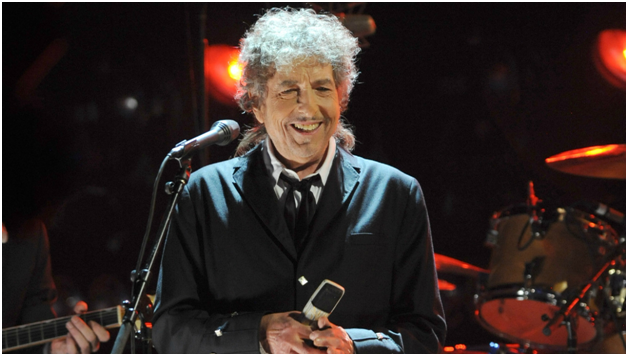What Bob Dylan's Nobel Prize Means For The World of Literature
The Nobel Prize in Literature was recently awarded to musician, Bob Dylan, “for having created new poetic expressions within the great American song tradition”. This has sent the literary world into turmoil over whether song lyrics can legitimately be considered literature. Conventionally defined as written works of fiction, and poetry, it reopened the discussion around how literature is defined and whether the term has distinct confines.
What do academics have to say about the matter? Laboni Bhattacharya, teaching English in Delhi University says, “What qualifies something as literature is, in my opinion, if it captures something essentially human; it represents our dreams, our fears, our ennui, and by that token, Dylan truly speaks for a million hearts.”
The Nobel Foundation itself defines literature as "not only belles-lettres, but also other writings which, by virtue of their form and style, possess literary value".
This surprising announcement however, was not the first of its kind. In 2015, the Nobel was awarded to Svetlana Alexiavich, a Belarusian journalist for her prose reportage. Her books are based on documentary material and the belief that “art has failed to understand many things about people.” Literature, then, must be growing to include song lyrics and nonfiction prose, at least as understood by the Swedish Academy-the selectors of the Nobel Prize winners.
Bob Dylan, in his acceptance speech, questioned the need for defining literature at all. Likening himself to Shakespeare, he said, ‘I would bet that the farthest thing from Shakespeare's mind was the question "Is this literature?"’.
The awards presented to Dylan and Alexiavich represent a growing trend toward accepting the popular and the unconventional as literature. On this, Debraj Mookerjee, professor of English at Delhi University says, “This is a recognition of a coming together of the popular and what is known as literary; what is considered easily accessible versus what is considered exclusive and rare. Dylan's work is recognised to bridge the two. He was always a popular folk singer, yet his work was politically rich and poetically intense, bridging the gap between the highbrow and the popular.”
On the gap between the popular and the literary, Bhattacharya says, “The opposition of quality is quite elitist, and presumes that what is popular is not very good, which dismisses the taste and preferences of those who are not trained in aesthetic categories.”
While this representation of the popular by the Nobel Committee may signify a step toward doing away with such elitism in literature, it may be of import to raise the question of why genres of fiction writing: science fiction and fantasy have received minimal consideration from major literary awards-the Nobel, Pulitzer and the Man Booker. The shift of mainstream, critically acclaimed literature has failed to accommodate popular and extensively written on genres of fiction such as speculative fiction.
In an article in The Guardian, Adam Roberts, British science fiction and fantasy writer, in analyzing the issue with regard to the Man Booker Prize, points out the complete lack of science fiction nominations over the years and how this literary award has reduced to just another genre award, that of “historical and contemporary fiction”.
Major literary awards, therefore, have yet to fully accommodate popular genres. In hope, Mookerjee says, “sooner rather than later, science fiction and fantasy will also have to be recognized and rewarded.”
The academia, however, has been receptive of the popular and growing with it, with the inclusion of papers on Popular Literature in English literature courses across universities as well as extensive research on popular fiction.
With the major literary awards catching up, previously rigid, exclusively defined literature is reasonably expected to develop and burgeon. The shifts in the literary world seem only to have begun.





